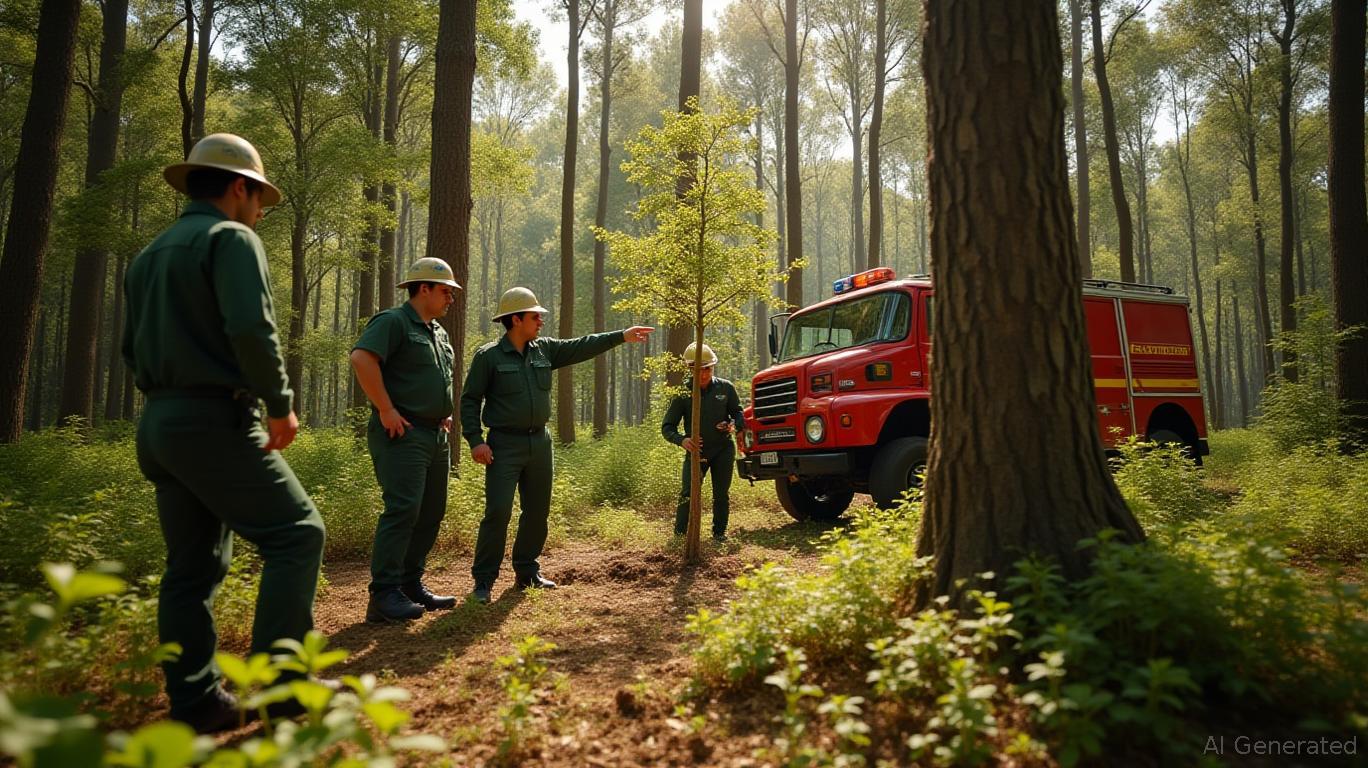Portugal’s battle against wildfires has become a defining challenge in the era of climate change, but it has also created a fertile landscape for innovative investments. With the government’s aggressive rollout of wildfire resilience infrastructure—spanning forestry reforms, renewable energy integration, and advanced technology—the nation is transforming risks into opportunities. For investors, this presents a rare chance to profit from solutions to a global problem while supporting sustainable economic growth.
Fire-Resistant Forestry: A Shift from Eucalyptus to Resilience
Portugal’s reliance on eucalyptus plantations—a monoculture favored by the pulp industry—has long been a double-edged sword. While profitable, these trees are highly flammable, exacerbating fire risks. Recent wildfires, such as the 2024 blazes that destroyed 147,461 hectares, have intensified calls to replace eucalyptus with fire-resistant native species like oak, cork, and Quercus robur.
The National Action Programme (PNA), a cornerstone of Portugal’s strategy, mandates the replacement of 1.2 million hectares of high-risk vegetation by 2030. Investors should look to companies involved in reforestation projects, such as LIFE NIEBLAS, which uses fog collectors to irrigate fire-resistant species.

Investment Opportunity: Firms specializing in agroforestry or fire-resistant tree cultivation may see demand surge. Additionally, land management startups partnering with Portugal’s Agency for Integrated Rural Fire Management (AGIF) could benefit from government contracts.
Renewable Energy: Powering Resilience and Profitability
Wildfire resilience and renewable energy are increasingly intertwined. Solar and wind farms, when strategically placed as firebreaks, can double as infrastructure that reduces ignition risks while generating clean energy. Portugal’s VIGIA Platform, an AI-driven wildfire monitoring system, also highlights the role of tech in enhancing grid stability during emergencies.
The FIRE-RES project, backed by €70 million in Dutch funding, exemplifies cross-border collaboration. It focuses on prevention, such as prescribed burns and grazing integration, while creating jobs in rural areas. Meanwhile, Portugal’s LIFE Landscape Fire Project combines grazing with controlled burns, offering cost-effective solutions at €160–180 per hectare—far cheaper than traditional mechanical methods.
Investment Opportunity: Investors in solar/wind projects near fire-prone areas may see dual returns: energy revenue and subsidies for firebreak contributions. Companies like EDP Renováveis, Portugal’s largest renewable energy firm, could see expanded roles in infrastructure that doubles as wildfire defense.
Policy-Backed Momentum and Financial Incentives
Government and EU policies are fueling this shift. The PNA’s €7 billion budget through 2030, with 57% allocated to prevention, ensures steady demand for forestry and tech solutions. The EU Civil Protection Mechanism provides additional resources, such as water bombers and satellite imagery, while Google’s wildfire monitoring system offers data-driven tools for risk mitigation.
The PNA’s targets—reducing ignitions by 80% and creating 60,000 jobs—underscore the scale of opportunity. Investors in fire-resistant forestry and tech partnerships stand to benefit from both direct contracts and long-term sustainability dividends.
Risks and Considerations
While the outlook is promising, risks persist. Political shifts could delay funding, and implementation challenges in remote regions may arise. Additionally, companies tied to eucalyptus, like The Navigator Company, face pressure to adapt, making their stock a potential play on industry transformation.
Conclusion: A Blueprint for Climate-Resilient Investing
Portugal’s wildfire crisis is a microcosm of global climate challenges, but its proactive policies offer a template for investors. By backing fire-resistant forestry, renewable energy integration, and tech-driven monitoring, investors can align profit with planetary stewardship. With €701 million in projected annual economic gains by 2030, Portugal’s journey toward resilience is not just about saving forests—it’s about building a future where sustainability and profitability thrive together.
Invest Now: Target forestry management firms, renewable energy developers with firebreak strategies, and tech companies in wildfire monitoring. Portugal’s wildfires may be burning today, but they’re lighting a path to tomorrow’s green economy.